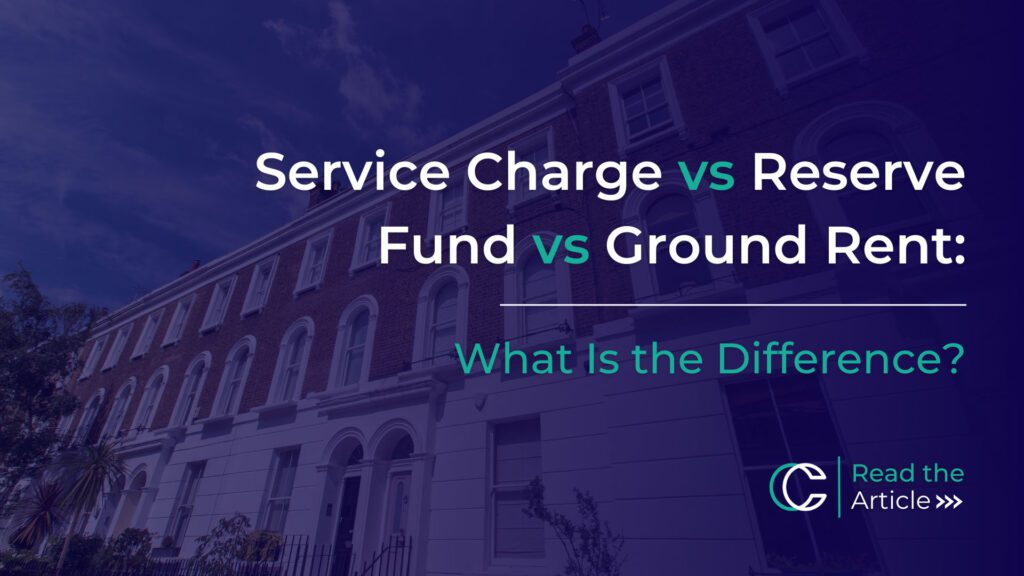Leaseholders and occupants of a block or estate are required to make different payments for items such as a service charge, ground rent, and potentially, a sinking fund.
These payments are quite common amongst many types of blocks and estates, so leaseholders and occupants should be aware of what they are.
Service Charges
A service charge is an amount payable by a leaseholder or tenant, that contributes towards repairs, service, maintenance, general improvement, insurance, and management costs overseen by the freeholder, or managing agent.
What is the service charge for?
Service charges are related only to the communal areas of the property, like staircases, entranceways, corridors, and outdoor areas, and are separate from costs incurred to maintain an occupant’s own property.
If you’d like to read more about service charges and how they are calculated, see our previous article for more information.
Reserve Fund
Typically included as part of the service charge, a reserve fund (also known as a sinking fund), is a fund that is set up by the freeholder or managing agent which sets aside a set amount of the service charge that will be used to cover large projects and repair work in the future.
What is the Point of a Reserve Fund?
A property with a healthy reserve fund is ultimately preferable to both occupants and the managing party, as in the event that major works are required in the property; a large portion, if not the entirety of the cost will be absorbed by the reserve fund – meaning that no additional service charge needs to be paid by the occupants. A good reserve fund balance will also increase the value of the property, giving it an advantage over blocks and estates without one in place.
Ground Rent
The ground rent of a property is paid by all leaseholders to the freeholder as per the terms of the lease. The ground rent is separate from the service charge in that it is payment for the leasing of the freeholder’s land, and is paid directly to them, not the managing agent.
Typical ground rent is usually up to £400 per year but can be more, depending on the terms of your lease. You need to read the terms of your lease very carefully, as some unscrupulous freeholders may increase ground rents regularly, and by large amounts.
There are no set guidelines to influence how much ground rent should cost a leaseholder. The typical ground rent should not cost more than £500 per year but can change depending on the factors in the lease and location (for example, properties nearer to and in the capital may have ground rents closer to £1000).
The Leasehold Reform (Ground Rent) Act 2022
The government introduced the Leasehold Reform (Ground Rent) Act 2022, which came into effect on 30th June 2022 and applies to all new and renewed leases.
The new legislation discontinued the charging of ground rent on residential leases with at least 21 years in England and Wales. On these new leases, the freeholder can only charge a ‘peppercorn rent’, which essentially means that there is zero ground rent.
If you have questions about the management of your block or need advice about changing your managing agent, get in touch, and discuss your situation.

